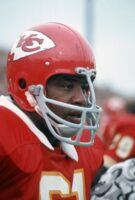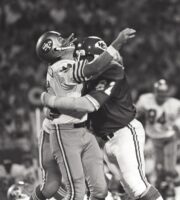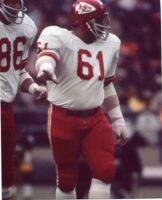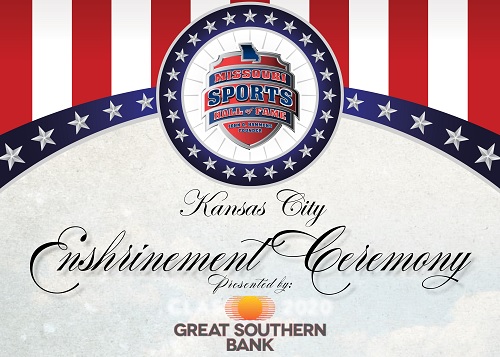Inductees
Curley Culp
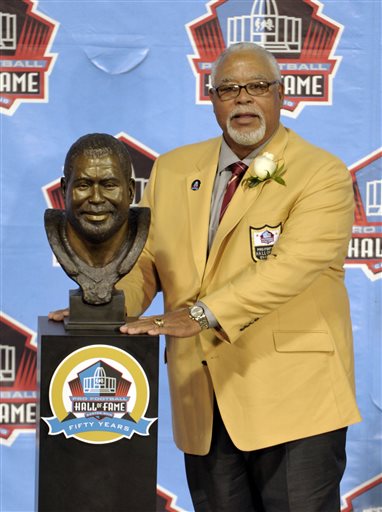
March 10, 1946—November 27, 2021
Decades before the Pro Football Hall of Fame would welcome him with open arms, Curley Culp was facing quite a challenge entering his second season in the National Football League.
This was in preseason 1969, the start of a path that ultimately led to the Kansas City Chiefs’ first Super Bowl victory. Culp had been one of the best college defensive linemen in the country two years earlier but, as a rookie, played on both sides of the ball.
“At the end of my first year, Ed Lathomer, and I were returning left defensive linemen,” Culp said. “Hank Stram (MSHOF 2004) said whoever graded out the best in training camp would win the position.”
Culp not only won it, but took command of what would become a 14-year NFL career – six in Kansas City – and his success is why the Missouri Sports Hall of Fame proudly inducted Culp with the Class of 2020.
Ultimately, he was enshrined in three other Halls of Fame, the Pro Football Hall of Fame (2013), the Chiefs Hall of Fame (2008) and the Arizona Sports Hall of Fame (2002).
Starring as a nose tackle, Culp helped the Chiefs win Super Bowl IV in January 1970 and later pushed the Houston Oilers to the 1978 and 1979 AFC Championship games. Along the way, he was invited to one American Football League All-Star Game, six Pro Bowls and earned a string of fives – that is, selection to All-Pro teams and All-American Football Conference teams.
Overall, he played in 179 career games, 82 for the Chiefs, who acquired Culp from the Denver Broncos not long after he had been the 31st overall selection of the 1968 NFL Draft.
In other words, the Arizona State Sun Devil emerged as a true force as a defensive lineman.
Over his six seasons (1968-1974) in Kansas City, he was a key cog in a defense that included future Pro Football Hall of Famers Willie Lanier (MSHOF 1999), Bobby Bell (MSHOF 2006), Emmitt Thomas (MSHOF 2012), Buck Buchanan, as well as Johnny Robinson (MSHOF 1999), Jim Kearney (MSHOF 2004) and Jerry Mays.
“Everybody loved Curley. He was tough, quick,” Bell said. “When he was in front of the center, he would laugh and say, ‘You need two people to block me.’ I loved playing with him. He was mean and tough.”
“You can’t be a nice guy and play defense,” Culp said. “And being there with teammates who had been around the horn, so to speak … it was a great experience to have that support. Just wonderful. But I held my own, even at 6-1.”
In the 1969 American Football League Championship, Culp made four tackles, two assists and a sack. In the Super Bowl, he had three tackles and assisted on a tackle in the 23-7 victory against the Minnesota Vikings.
“Before the Super Bowl, Lamar Hunt took us to Santa Barbara (California) for a week to get away from the cold. That helped getting our focus together,” Culp said. “We understood they had a great running attack, so if we could stop the run, they’d be one-dimensional.”
Truth be told, Culp had come a long way.
In his teens, he played for the Yuma High School Criminals – yes, that’s the school mascot, dating to the early 1900s – and was a standout football player and two-time state champion wrestler there.
At Arizona State, he earned All-Western Athletic Conference as a junior in football but wasn’t noticed by NFL teams until after he won the heavyweight bracket of the 1967 NCAA Wrestling Championships. He also earned a tryout for the U.S. Olympic Trials.
In fact, at the time, he was thinking of becoming a farmer, having held the role of president of the Future Farmers of America in high school.
“Most of our (college football) games were at night, and we didn’t have a lot of media coverage,” Culp said, explaining why he didn’t get immediate attention on the football field.
Fortunately, he was invited to the East-West Shrine Game and the Chicago All-Star Game before the 1968 NFL Draft.
Soon, he joined the Chiefs and not only credits his former defensive teammates but also assistants Tom Pratt, Tom Bettis and John Beake. He also thanks the Oilers, his team from mid-1974 to 1980 before Culp retired in 1982 after playing for the Detroit Lions.
“This is special,” Culp said of his MSHOF induction. “Theoretically, I started my career in Kansas City, Now it’s come full circle.”
